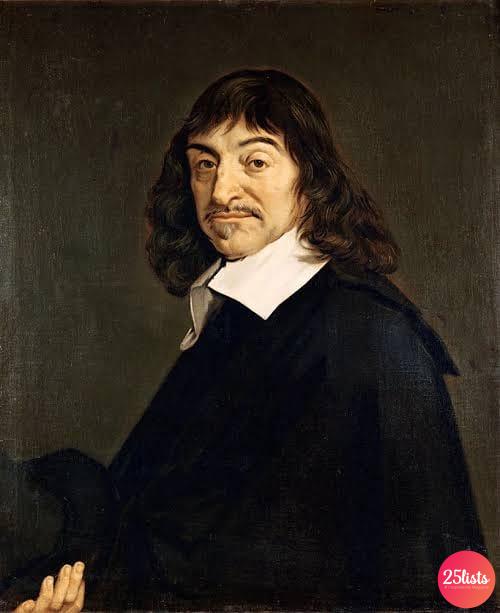Guided by a strong belief in all that is rational, was one of the most important mathematicians and thinkers of his period. Let’s find out the story of René Descartes.
Who was René Descartes
René Descartes known to us as Descartes (La Haye en Touraine, March 31, 1596 – Stockholm, February 11, 1650), was a philosopher and mathematician French.
She grew up in a French noble family with her father, a lawyer and her brothers, as her mother died a year after her birth giving birth to her fourth child.
The father is often absent and therefore to take care of him are the grandmother and the nurse who offer him an excellent education through a tutor. Marked by poor health he managed to enter the boarding school only in 1607 where he undertook the humanities studies and that lead him to approach theology and philosophy.
The passion for mathematics
Engaged in the study of Aristotelian philosophy he learns very little about mathematics and over the years will leave testimony of his scholastic disappointment. Even in one of his texts entitled “Method” he says that according to him schools do not allow to form him critical spirit of the students. He later decides to enroll in the faculty of law but grows to understand that he is very interested in what concerns the logic.
He understands this during a stay abroad which allows him to meet Isaac Beeckman who transmits his curiosity towards the scientific observations stimulating him to solve problems. In fact, over the years he will be remembered for the success of some mathematical demonstrations and for the diffusion of the well-known diagram that bears his name.
The union between science and philosophy
His approach to science proves to be fundamental in the study of philosophy. Through concrete evidence in fact, in the “Discourse on the method”, he succeeds in proving that by questioning certainties one is proving one’s existence. Hence the well-known formula “Cogito ergo sum” or that I cannot doubt me and my existence as I think and therefore I am.
Rationality also emerges in the knowledge of the external world as the construction of knowledge takes place through deductive method. From this he succeeds in proving that in reality the subject cannot really know what surrounds him, but he can know what his idea of things is. Although many scholars will come to overcome and perfect his thinking, his contribution has been fundamental in modern philosophy.
READ ALSO: Who was Francesco Bacon: all about the English philosopher
READ ALSO: Who was Thomas Hobbes: all about the British philosopher

